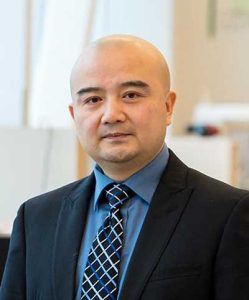 Dr. Shine Xu Zhang (known as Dr. Shine) is industrial research chair in applied nanotechnology at Cape Breton University. A chemist with extensive experience in immunoassay and cancer research, he is an expert in nanotechnology and lateral flow assays. Dr. Shine is a key member of our scientific advisory board.
Dr. Shine Xu Zhang (known as Dr. Shine) is industrial research chair in applied nanotechnology at Cape Breton University. A chemist with extensive experience in immunoassay and cancer research, he is an expert in nanotechnology and lateral flow assays. Dr. Shine is a key member of our scientific advisory board.
What is your current role/position?
I am a principal investigator working in the Verschuren Centre at Cape Breton University (CBU). My job title is the Research Chair in Applied Nanotechnology. I am leading a group of scientists to develop nanotechnology for health and environmental applications.
What are your current areas of interest/research?
I am working on generation, elimination and application of reactive species generated on nanomaterial surface on various applications, for example, antibacterial materials, disease treatment and diagnosis, and water treatment as well.
How did you first become involved with Sona?
When Sona moved their research lab to CBU in 2015, we built our first collaborative research project.
What makes Sona different from other companies operating in this market?
Their gold nanorods are uniquely nontoxic, making them different from all the other gold nanorods in the market. This unique property could be very useful for health applications.
What do you think of the potential of Sona’s technology?
I am very optimistic about the future of Sona. First, the gold nanorods they make are very versatile, with huge application potential in various fields. Second, this is the time for the industry to generate greener and healthier nanomaterials. Nowadays, our society does not want to make commodities by using or generating toxic by-products, especially for medical applications.
What developments involving gold nanoparticles/nanorods can we expect to see in future?
We can expect to see more efficient and effective diagnostic devices (bioimaging, test strip/dipstick), more efficient solar cells, more effective cancer treatment with light, and more efficient microelectronics.